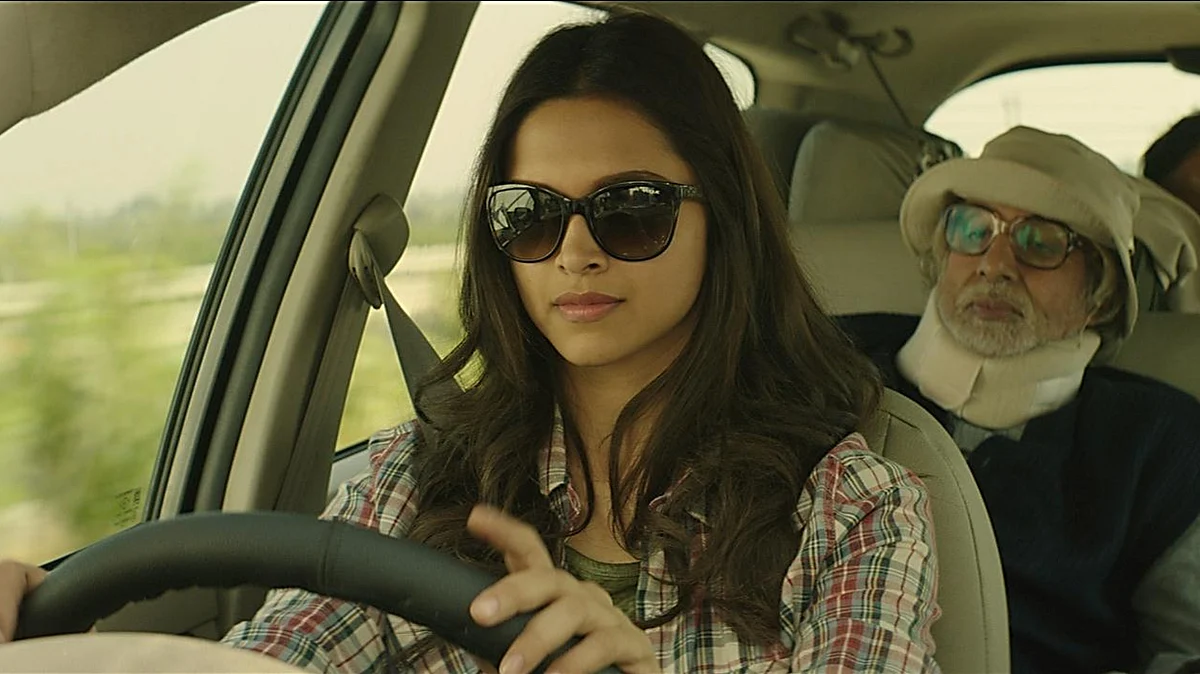8 years of 'Piku': Revisiting a tale of gentleness and familiarity
Starring Amitabh Bachchan, Irrfan Khan and Deepika Padukone, 'Piku' was released 8 years ago today on May 8, 2015

In Piku (2015), Shoojit Sircar brought back a quality in our mainstream cinema that seemed to have gone with the whim—gentleness. There is an innately gentle quality to the storytelling in Piku, like a breeze on a humid summer night that blows through your hair while you are sleeping on the rooftop, counting the stars.
Of Vicky Donor and Madras Cafe fame, Sircar was exceptionally fortunate to assemble a star cast that most directors can only dream about.
Suffice it to say at this point that Piku works, as every actor (big or small) is inured to the director’s vision of a world where domesticity is a domain that drives human life forward.
And drive is what Irrfan Khan does with such casual calm that you forget he is playing a reluctant outsider. By creating a character who can look at the blunt selfishness of a father who won’t let his daughter have a life of her own, the script expands the domestic vista without scattering its precious and fragile mundaneness. Into the story of domestic disharmony, Khan brings a detached bemusement that somehow makes life seem tolerable—even beautiful.
Piku is a film with an exceptionally keen ear and eye. Sircar, with the help of his writer (Juhi Chaturvedi) and cinematographer (Kamaljeet Negi), travels from Delhi to Kolkata (by car, if you please!) without the touristic curiosity of an Imtiaz Ali film. There is a charming inevitability to the shifting locations as the car trots across multi-lane highways with a silent and efficient inevitability.
No fuss, no frills, Piku’s lyricism flows without a pause for effect. Dinner-table conversations in Delhi and Kolkata capture the different sounds of crockery. How does the sound designer do this? And where on earth did composer-singer Anupam Roy find the creative strength to bring back the homespun sound of music that he injects into the souls of his characters?
I have to confess that at one point in the narration, I thought the sheer weightlessness of the drama would overpower the narrative. A miracle happens to the characters’ lives every time they threaten to crumble under the burden of their ordinariness. They renew themselves through a karmic cycle which the film’s narrative holds close to its chest.
Piku is an exceptionally intimate character study. The three principal characters bare their frailties on camera as though they were part of a reality show that had no cameras. The emotions are raw and unabashed.
Amitabh Bachchan’s eccentric Bangla gentleman, a patriarchal car wreck of a character who won’t let his daughter breathe or breed, could have easily become a caricature. With extraordinary fluency and vigour, Bachchan turns his selfish father's role into an occasion to explore the 'route' cause of the craggy journey parents take when they become overly dependent on their children.
Padukone’s Piku is filled with an implosive anguish that blurts itself out unannounced when we least expect it. Even when she isn’t doing anything on screen, she makes you look at her. Padukone gets better with every role. She portrays her embittered, standoffish character with a sense of pride and dignity that no domestic strain, nor even a father who obsesses over his bowel movements, can snatch away.
Balancing on the edge of quirkiness, smothered by the sheer ennui of everyday existence, the characters somehow create a spatial harmony for their dreadfully unexciting lives. This is a world so comfortingly familiar and yet so fresh and vigorous, you would want to take it home with you.
Piku is as emotionally rich and satisfying as any movie experience can get. With this film, Sircar confirms his place among the most invigorating filmmakers we have today. His appetite for nuances is admirable. To cite an example, the way Bachchan’s faithful man Friday character sits awkwardly in the car next to him is a posture derived straight from a middle-class household.
The actor Balendra, who plays the man Friday, and Moushumi Chatterjee, who plays Bachchan’s firebrand (married-thrice-wouldn’t-mind-a-fourth) sister-in-law, seem to know that they are part of a journey whose end is known, and yet they are not the least robbed of excitement by their knowledge of mortality.
The opening credits feature the long-forgotten sound of the sarod and the sitar, mingling into an excursion into a state of enraptured ecstasy which you thought died with Hrishikesh Mukherjee. Who makes films about elementary relationships any more? Who except a filmmaker who isn’t afraid to let his characters discuss bowel movements as though they were the most exciting things to mull over in life.
Follow us on: Facebook, Twitter, Google News, Instagram
Join our official telegram channel (@nationalherald) and stay updated with the latest headlines
